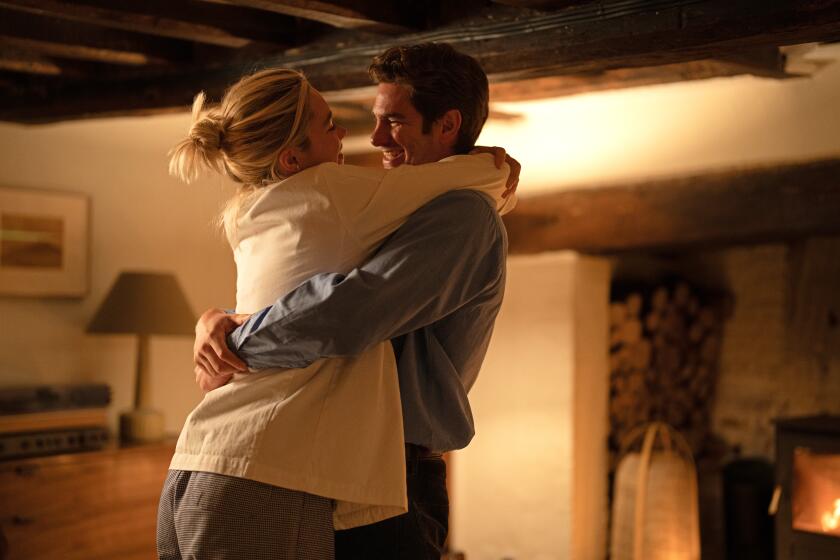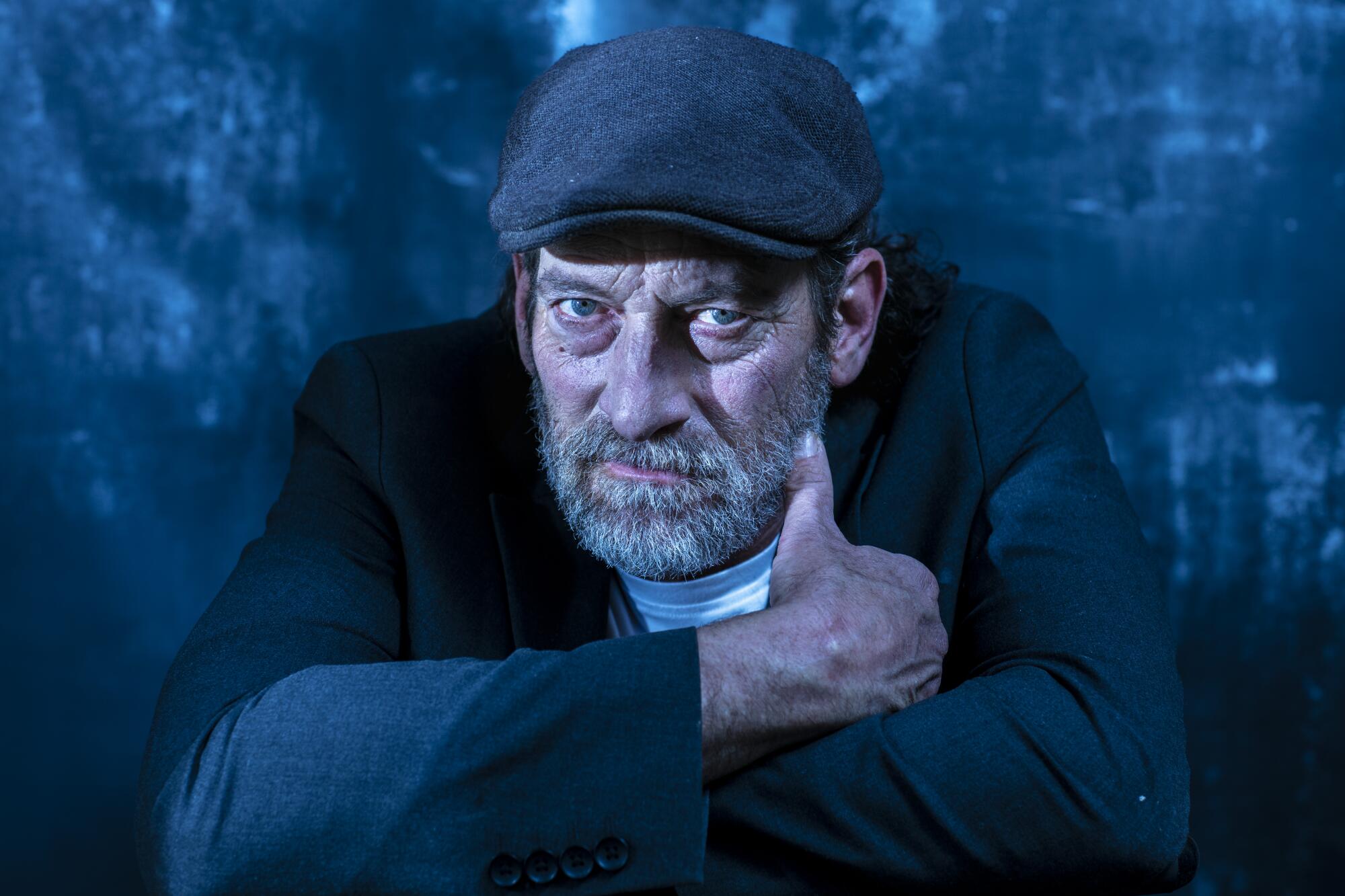
In “CODA,” Frank Rossi is a fisherman who struggles to keep his business going as economic hardships press upon him. As played by Troy Kotsur, Frank is funny, loving and raunchy as hell. But then, he’s married to Jackie (Marlee Matlin), and as Frank will point out to anyone, how could a man help himself with her by his side? They have two children, Leo (Daniel Durant), an adult whose parents still treat him like a kid, and Ruby (Emilia Jones), a high school senior with a dream that interferes with her obligations. She wants to sing; the rest of the family is Deaf and depends on her as an interpreter. (CODA is an acronym for Child of Deaf Adults.)
A remake of the 2014 French film “La Famille Bélier,” the August release from Apple TV+ has earned three Oscar nominations, including best picture and for writer-director Siân Heder’s screenplay.
That third nomination? Well that went to Kotsur, the standout among a particularly powerful ensemble. The nomination is a first for a Deaf male actor. Reached at his home in Phoenix via video chat, Kotsur has not yet tired of talking about the role he’s waited a lifetime to play.
Born in Arizona into a hearing family, before the availability of closed-captioning on television, “I had to depend on watching television with visuals, like ‘Godzilla’ and ‘Tom & Jerry.’” Sci-fi and action movies such as “Close Encounters of the Third Kind,” “Jaws,” and “Raiders of the Lost Ark” appealed as well. “I was so excited to watch these, because of the language in the picture — without dialogue, without speech,” he says through a sign language interpreter. “That shows how good those actors’ performances were.”
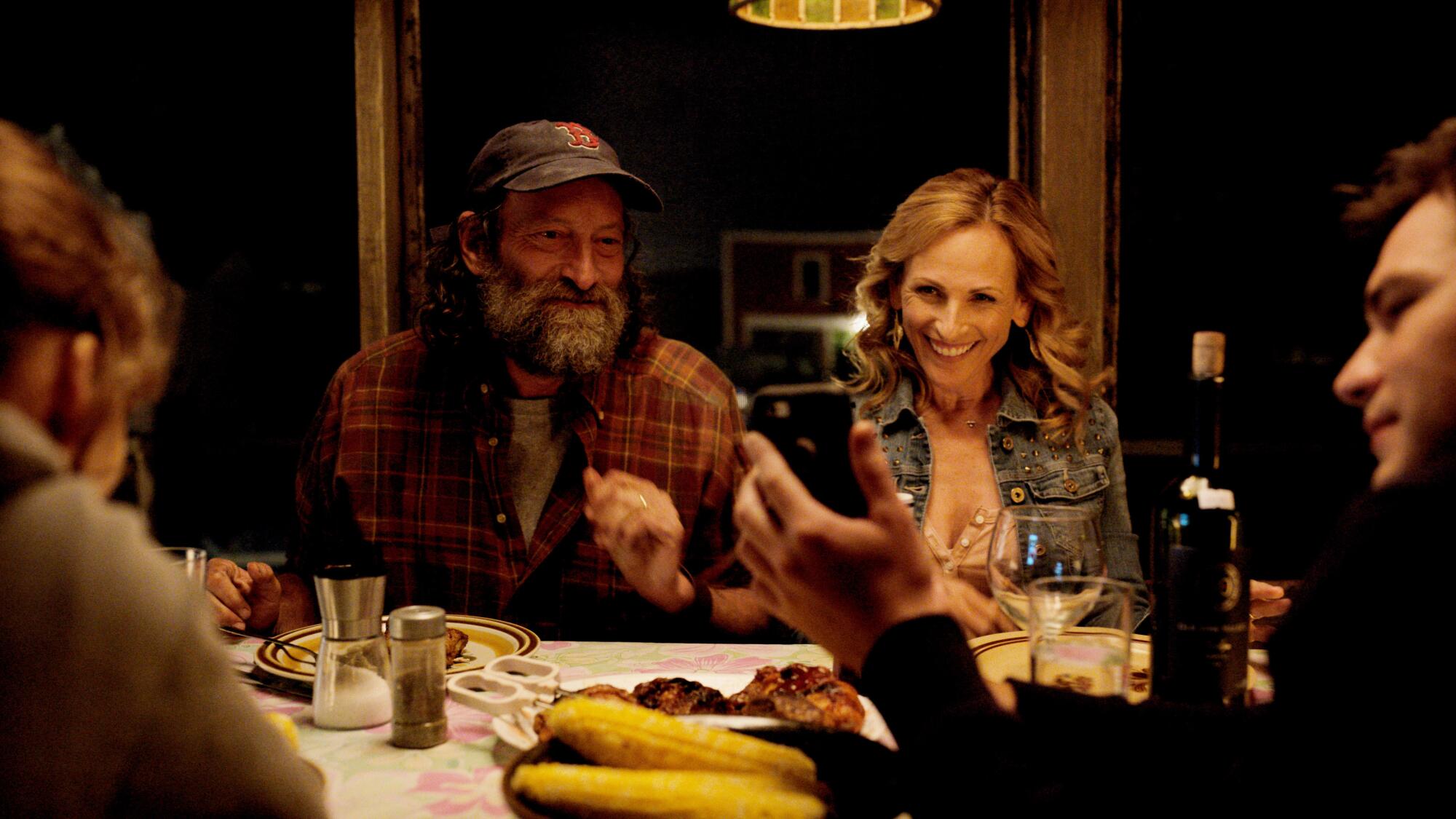
Then he saw “Star Wars,” and like with so many young viewers at the time, “it changed my life. It was jaw-dropping. There was so much going on, I felt like it was visual noise. That was so inspiring for me as a child. I wanted to become a storyteller; I wanted to become an actor. But I realized that being deaf would be a struggle, because most dialogue was spoken dialogue — I had not seen sign language on screen yet.
“So I had this moment of self-introspection, thinking, why am I deaf, why did God send me to this planet deaf, with all these crazy people? I have to go through all this struggle. For over 30 years, Hollywood wasn’t ready to give opportunities to Deaf actors. They would give you a little tidbit, one scene here or there.”
Years later, watching Matlin in “Children of a Lesser God” (for which she became the first Deaf Oscar nominee and winner) with his friends in 1986 was the first time he found authentic Deaf representation on screen. “When I saw that, it built me up, and I had more hopes and dreams to work as an actor,” he says. “I said, ‘I hope to work with her one day,’ and they all laughed at me.”
Attending Gallaudet University, the only liberal arts school for the Deaf in the country, Kotsur found a strong, welcoming theater department. From there, he started touring with theater groups, eventually landing at Deaf West Theatre in Los Angeles. He hoped to break into film and television while living in “Hollywoodland,” as he puts it, but that didn’t come to pass, and after decades of trying, he and his family moved to Phoenix.
And then “CODA” happened.
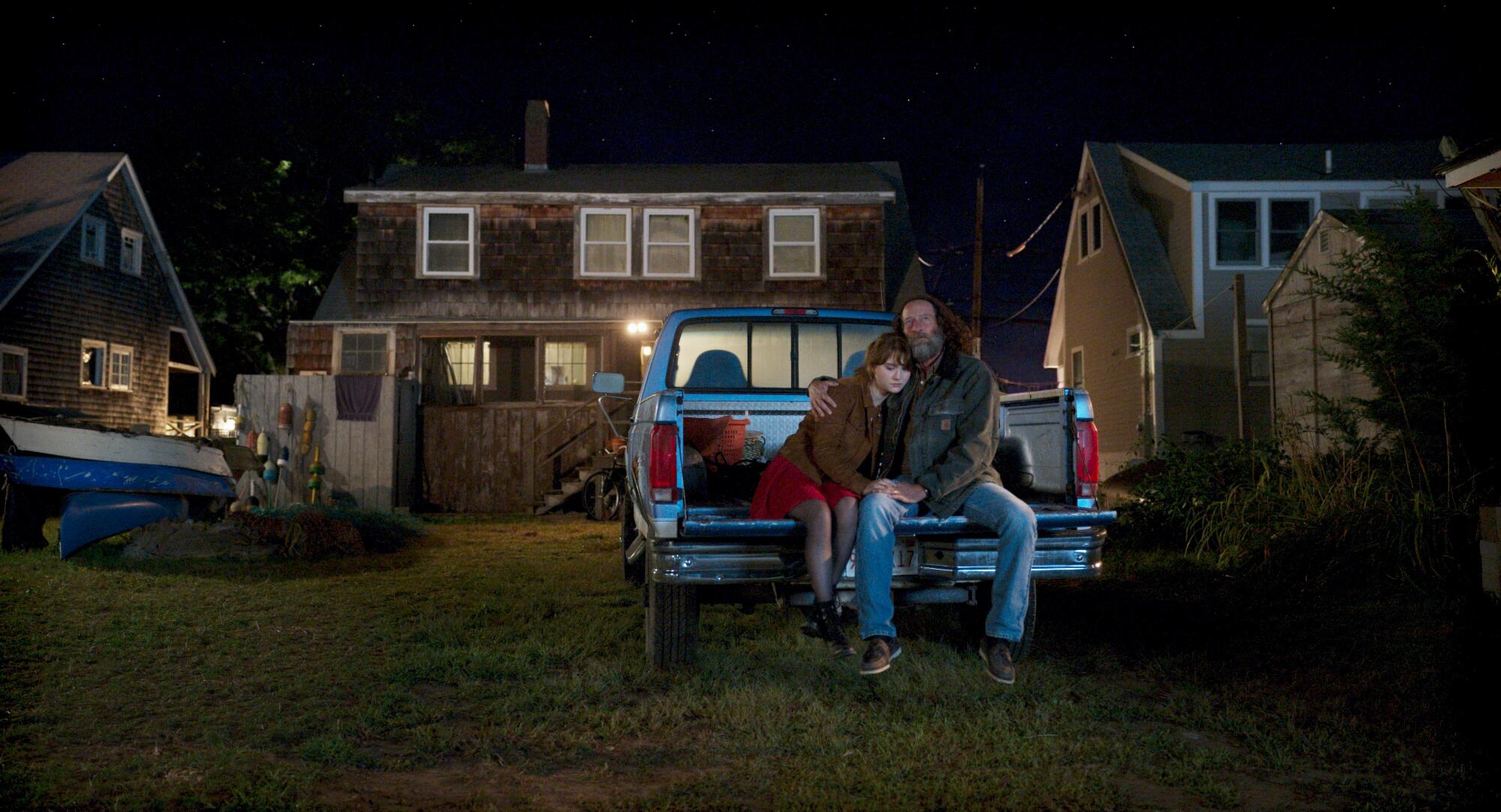
Kotsur couldn’t wait to start playing Frank. “I’m tired of Deaf people being portrayed as a victim. ‘Oh, hearing people are here to help the poor Deaf person.’ This time, in this project, I just want to show some b—, some real Deaf b—, that hey, this character’s a tough guy, a Deaf male who struggles just like anyone else out there who owns a small business. The only thing that’s different is the method of communication.”
Arriving on the Gloucester, Mass., set for a two-week rehearsal period, he went out on a fishing boat at 3 o’clock every morning, and observed the tightknit fishing community. “They would go to the bar at 10 a.m. because of their schedule. They had so many fights in that bar — I almost got a black eye myself.”
Frank signed much differently than Kotsur, “because wearing those heavy gloves would influence the way we would sign out on this fishing boat.” That attention to detail mattered greatly to Heder. “I wish that more Hollywood directors were like Siân. She has a big heart. She really cares.”
Heder had American Sign Language consultants watching the monitors to make sure the actors’ signs weren’t cut off or out of frame. “We had Deaf eyes on set, so I felt more comfortable; I had freedom,” Kotsur says. “They’ll tell the director and the cameraperson, ‘Hey, you need to zoom out a little bit.’ I don’t have to worry about it. I can remain an actor.”
He was thrilled to work with Matlin but admits to some trepidation. “Imagine doing a love scene with an Oscar winner. I was very nervous, biting my fingernails, and I’m glad that we made it through. She told me, ‘I think you’re the first Deaf guy I’ve ever done a love scene with.’ So I felt quite honored.”
As Frank, Kotsur has plenty of opportunities to use colorful language onscreen, not unlike the actor himself. “Sometimes I use vulgar phrases, and the interpreters have a hard time finding the right words,” he says, turning to his ASL interpreter, Justin Maurer. “Justin, what’s your experience?” Replies Maurer: “No comment.”
Heder found that colorfulness extraordinary. “Troy is the most inventive signer out there. His ability to play with the language is magical,” she wrote in a recent essay for The Envelope. “The salty accent I had initially imagined for Frank came alive with Troy’s hands. I had met my match when it came to dirty humor. I wrote the line, ‘I’d give my left nut to tell them to go screw themselves.’ Troy signed it by hanging the balls in front of his face. Then he yanked off the left one and pulled an invisible pin out of it with his teeth, turning it into a grenade and chucking it over his shoulder in the direction of the fisherman. I was delighted.”
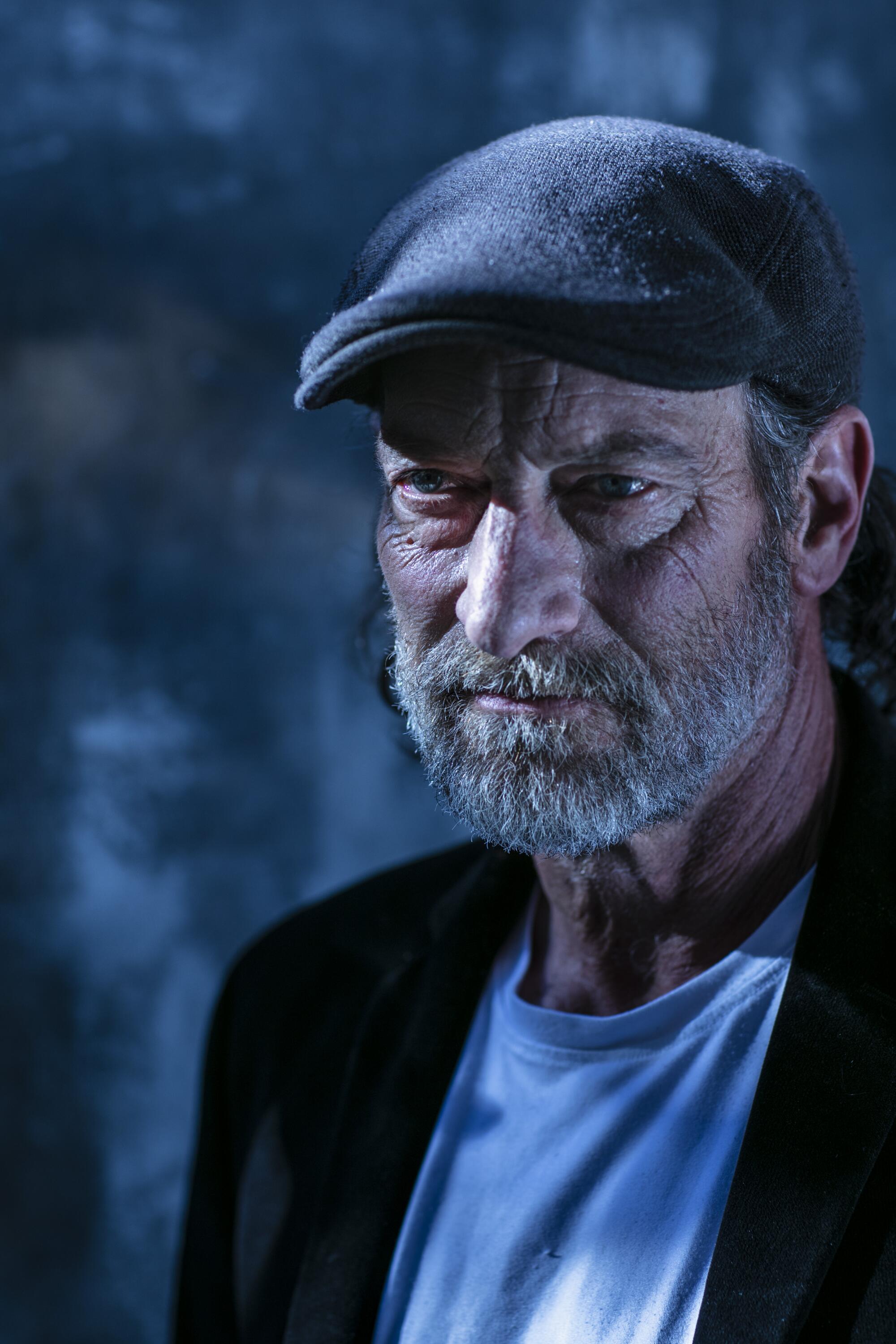
He was almost too colorful. The MPAA initially gave the family film an R rating. “I thought, ‘Where have you been this whole time? I grew up in your world, watching your movies, with your swear words, and now it’s my opportunity to turn the tables, and all of a sudden you give me an R?” The rating was changed to PG-13 on appeal.
The entire experience was so fulfilling that, Kotsur says, “after we wrapped up, it actually took me six months to let go of my character. My wife was complaining, ‘Can you please shave that beard? I can’t even kiss you,’ and I said, ‘I’m not ready to let go of Frank yet. I miss him.’”
More to Read
From the Oscars to the Emmys.
Get the Envelope newsletter for exclusive awards season coverage, behind-the-scenes stories from the Envelope podcast and columnist Glenn Whipp’s must-read analysis.
You may occasionally receive promotional content from the Los Angeles Times.








